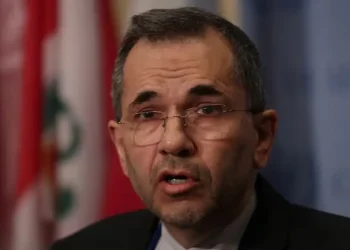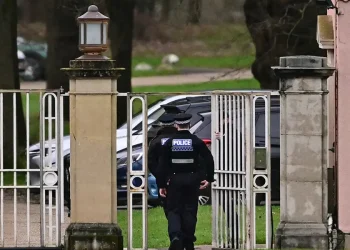WILLIAMSTON, N.C. (news agencies) — Weeds have punctured through the vacant parking lot of Martin General Hospital’s emergency room. A makeshift blue tarp covering the hospital’s sign is worn down from flapping in the wind. The hospital doors are locked, many in this county of 22,000 fear permanently.
Some residents worry the hospital’s sudden closure last August could cost them their life.
“I know we all have to die, but it seems like since the hospital closed, there’s a lot more people dying,” Linda Gibson, a lifelong resident of Williamston, North Carolina, said on a recent afternoon while preparing snacks for children in a nearby elementary school kitchen.
More than 100 hospitals have downsized services or closed altogether over the past decade in rural communities like Williamston, where people openly wonder if they’d survive the 25-minute ambulance ride to the nearest hospital if they were in a serious car crash.
When Quorum Health shut down Martin County’s 43-bed hospital, citing “financial challenges related to declining population and utilization trends,” residents here didn’t just lose a sense of security. They lost trust, too, in the leaders they elected to make their town a better place to live.
People like 73-year-old Bobby Woolard say they don’t believe any politicians – from the local county commissioners to the presidential candidates who will pass through this swing state with big campaign promises in the coming months – care enough to help them fix the problem.
“If you’re critically ill, there’s no help for you here,” Woolard said on a sunny April afternoon while trimming his neighbor’s hedges. “Nobody seems to care. You got a building sitting there empty and nobody seems to care.”
The sentiment in this sharply polarized and segregated eastern North Carolina county could hint at trouble for President Joe Biden, who has made health care a key part of his reelection campaign against Republican rival Donald Trump.
His TV campaign ads hone in on Trump’s promises to diminish the Affordable Care Act. On social media, Biden regularly reminds followers of the law he signed that caps the cost of insulin. And in North Carolina, the campaign is narrowly focused on promoting Democrats’ successful efforts to expand Medicaid, which will extend nearly-free government health insurance to thousands of people and reduce the indigent population for hospitals.
Biden and Trump are fiercely competing for the state, which also features the most prominent governor’s race of the year. Martin County, where Williamston is located, voted for Trump in 2020.
“Health care is on the ballot this year, and voters will remember that when they reject Donald Trump in November,” said Dory MacMillan, the Biden campaign’s North Carolina communications director.
But Biden’s achievements might not be enough for crucial voters living in towns like this one in North Carolina, where people have a hard time just getting emergency care when they need it.
Nationally, emergency room wait times have ballooned, with the average emergency room visit taking nearly three hours last year, according to the Centers for Medicare and Medicaid Services. Health care systems are also grappling with a health care worker shortage that worsened after burned-out employees emerged from the pandemic.
Those problems are particularly pronounced in rural communities, where more than 68 hospitals have closed in the last decade. The closures slowed down during the COVID-19 pandemic, when the federal government doled out billions of dollars in extra funds to hospitals. But with that money spent, hospital closures might tick up again, said George Pink, the deputy director of the University of North Carolina’s Sheps Center’s Rural Health Research Program.
Often, it’s emergency room care that residents miss the most, Pink said.
“If you’re having a heart attack, if you’re having a stroke, if you’re giving birth, all those are the kinds of life events where you need access to emergency care quickly and properly,” Pink said. “Those communities that have lost their rural hospitals, they don’t have that.”
Months before Williamston’s hospital closed, an outside consultant sent a dire warning about emergency care in the county.
The county’s volunteer first responder system was ineffective and long response times that stretched past 15 minutes in some areas were putting “lives at risk,” the consultant told the county’s commissioners last April.
The system was “in desperate need for vision, direction, guidance, command and control, and additional financial support,” the consultant advised the county, according to meeting minutes.
Since Martin General Hospital shut down, things have only gotten worse.










 American Dollar Exchange Rate
American Dollar Exchange Rate